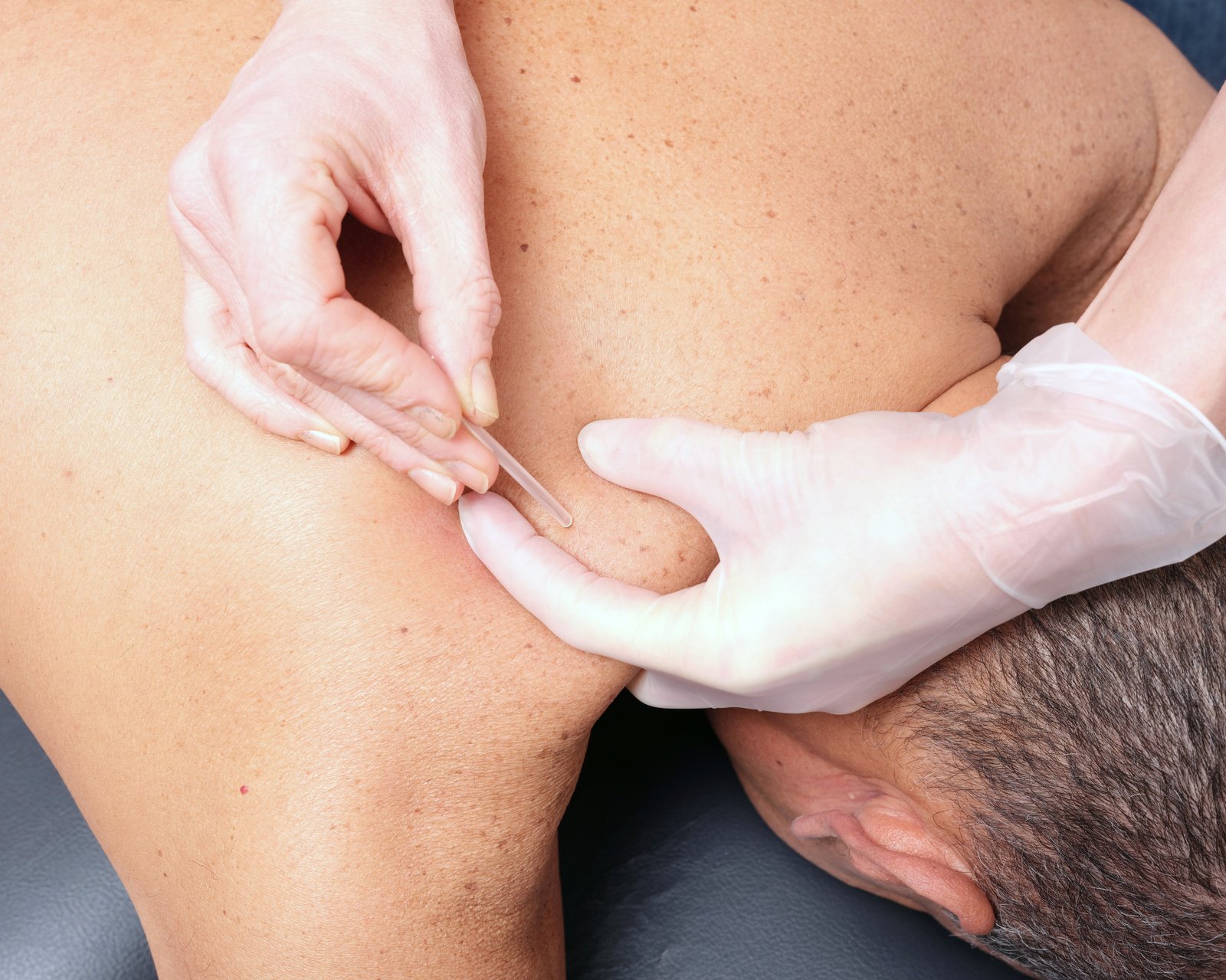What’s the difference between acupuncture vs dry needling? At first glance, they look very similar.
Acupuncture and dry needling are two popular treatments for pain. They both have their pros and cons, so it can be tough to decide which one is right for you.
We’ve put together this dry needling and acupuncture guide to help you understand the differences between them. If you still have questions, don’t hesitate to reach out to us – we would be happy to help!
Keep reading to learn their differences.
What Is Acupuncture
Acupuncture is an ancient Chinese practice that uses needles to stimulate specific points on the body. If you were to go to an acupuncture clinic, you would lie down on a comfortable table. The acupuncturist would then insert thin needles into your skin at specific points.
How Does Acupuncture Work?
Acupuncture is based on the belief that there is a flow of energy (qi) throughout the body. This energy is responsible for our health and well-being. When this energy flow gets blocked or unbalanced, it can lead to pain or illness.
Acupuncture restores the balance of qi and improves our health. The acupuncture needles stimulate the flow of qi and help the body heal itself.
What Is Acupuncture Used For?
Acupuncture has existed for centuries as a way to treat a variety of conditions. In recent years, it has become more popular as an effective treatment for pain.
What Is Dry Needling
Dry needling is a Western technique that uses needles to target trigger points in the muscle. Trigger points are knots or tight areas in the muscle that can cause pain.
Dry needling is like acupuncture in that thin needles are inserted into the skin. But the needles are not inserted at acupuncture points. Instead, they go into trigger points in the muscle.
How Does Dry Needling Work?
Dry needling works by releasing the muscle knots and relieving pain. The needles stimulate the nervous system to promote healing.
Acupuncture Vs Dry Needling: What’s the Difference?
Both acupuncture and dry needling use thin needles that are inserted into the skin. The main difference is where the needles are placed.
Acupuncture targets energy meridian points. Meridian points are energetic lines that run throughout our bodies.
Dry needling is a Western approach to acupuncture that targets muscle trigger points instead of qi. It is based on the theory that trigger points in the muscle can cause pain.
So, What’s the Best Treatment for You?
The answer depends on your specific needs. If you are looking for pain relief without the Eastern belief system, dry needling may be the better treatment for you.
If you are open to acupuncture and its more holistic benefits, acupuncture may be the better treatment option.
So who wins in the acupuncture vs dry needling debate? It’s up to you! Whichever one you pick, we think you’ll feel relaxed by the end of the session! Consult with a trained professional to determine which treatment is best for you.

